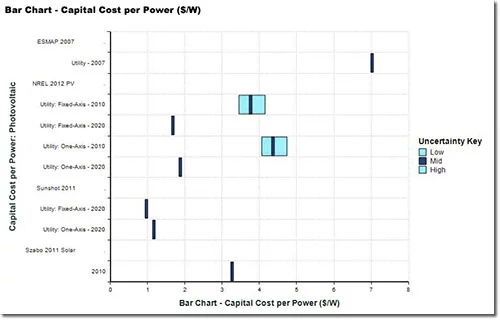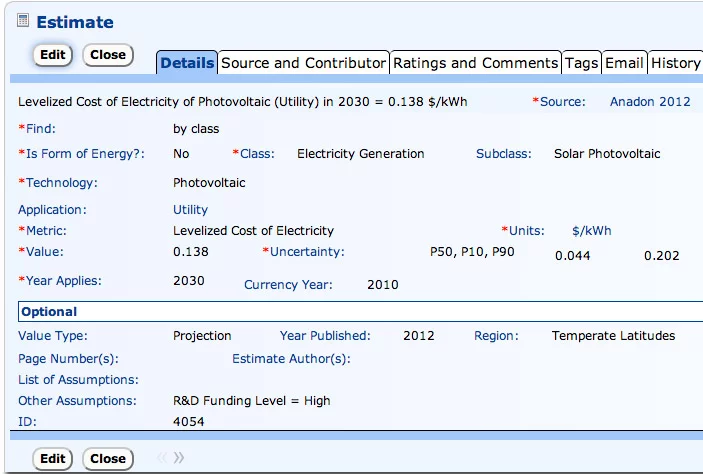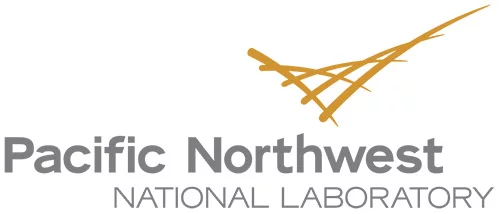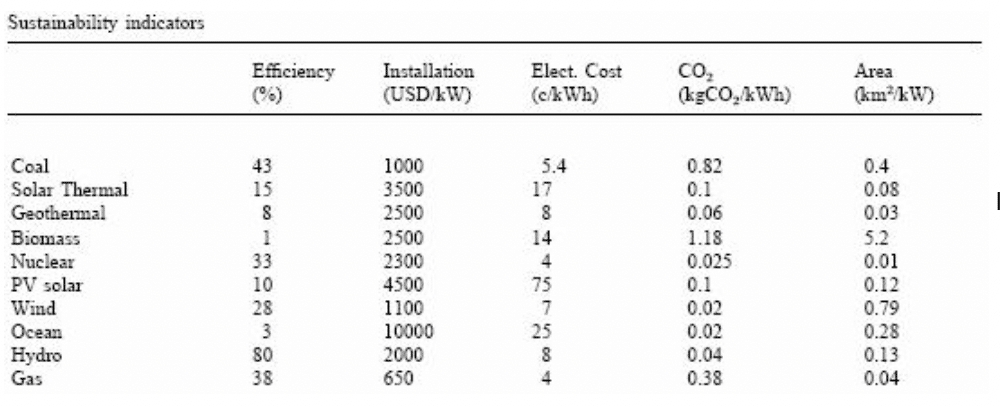 In the ever-changing world of advanced energy technology, intelligent decisions require high-quality projections of technology costs, efficiencies, and more.
In the ever-changing world of advanced energy technology, intelligent decisions require high-quality projections of technology costs, efficiencies, and more.
Megajoule.org was an open online platform for exploring and sharing estimates and projections of key quantities related to energy and energy technology, with a focus on renewable electricity generation and alternative fuel vehicles. Anyone could browse and download information, rate and comment on estimates, or add estimates to the database.
The challenge
The process of collecting and making sense of projections can be difficult and time-consuming.
Figure 1 shows that projections of the capital cost of utility-scale solar photovoltaic (PV) over the next few decades can vary significantly.

Figure 1: Estimates of the capital cost per unit peak power for utility-scale solar PV. This graph was generated by the Megajoule.org graphing engine, which you are more than welcome to explore.
The solution
Megajoule.org, a structured searchable database of estimates of key energy-related quantities, makes this whole process much easier!
Megajoule.org stores estimates of industry-defining quantities, such as the average efficiency of PV cells, or the pack cost of lithium-ion batteries for electric vehicles. The data is highly structured, allowing users to search estimates by technology (e.g. amorphous silicon PV), or a subclass of technologies (e.g. solar), and/or by metric (e.g. efficiency).
Each estimate is fully documented with source information, units, uncertainty (if applicable), and a space to state assumptions. This estimate structure ensures that estimates added by the many different users will fit fairly neatly in the same structured database.
Figure 2 shows a detailed view of an individual estimates.

Figure 1: Estimates of the capital cost per unit peak power for utility-scale solar PV. This graph was generated by the Megajoule.org graphing engine, which you are more than welcome to explore.
Acknowledgements

Carnegie Mellon University, Center for Climate Decision Making and the Center Director, Professor Granger Morgan, with funds from the National Science Foundation.

Pacific Northwest National Laboratory, project director Dr Cary Bloyd, with funds from the US Department of Energy, Vehicle Technology Program, Fuel Technologies and its Team Lead, Kevin Stork.

Agiloft, Inc. and its CEO, Colin Earl, for provided us with their flexible database software on special terms that make it easy for MegaJoule.org to be open and accessible.

Lumina Decision Systems has also supported this work with internal R&D funds.





